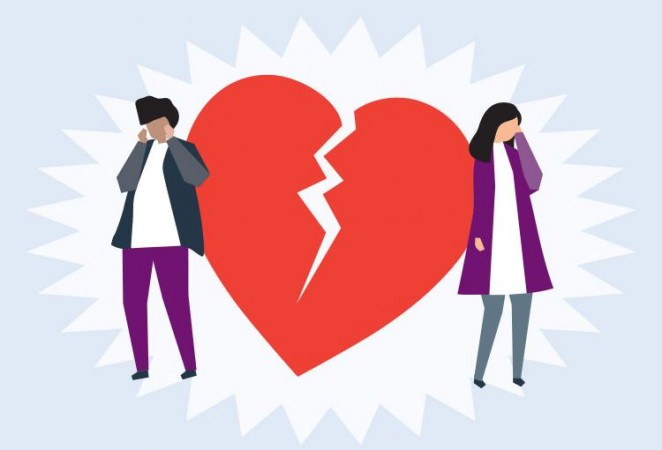
Broken Heart Syndrome, also known as Takotsubo Cardiomyopathy, is a medical condition that mimics the symptoms of a heart attack but is triggered by intense emotional stress rather than a blockage in the arteries. This article will delve into the various aspects of Broken Heart Syndrome, exploring its causes, symptoms, and treatment options in detail.
Causes of Broken Heart Syndrome (BHS):
Emotional Stress: The primary trigger for Broken Heart Syndrome is intense emotional stress. This can include the loss of a loved one, receiving distressing news, or experiencing a sudden and significant life event. The emotional toll on an individual can manifest physically, affecting the heart's functioning.
Relationship Strain: Breakups, divorce, or strained relationships can also contribute to the onset of Broken Heart Syndrome. The emotional upheaval associated with these events can lead to a sudden weakening of the heart muscle.
Other Triggers: While emotional stress is a common factor, there are instances where Broken Heart Syndrome occurs without an apparent cause. Researchers are still exploring other potential triggers, including hormonal imbalances and neurological factors.
Symptoms of Broken Heart Syndrome:
Chest Pain: Individuals with Broken Heart Syndrome often experience sudden, intense chest pain, resembling the symptoms of a heart attack. This pain is caused by the temporary weakening of the heart muscle.
Difficulty Breathing: The condition may lead to shortness of breath, making it challenging for affected individuals to breathe normally.
Sweating: Excessive sweating is another symptom that can accompany Broken Heart Syndrome, reflecting the body's response to the stress placed on the heart.
Dizziness: A sense of lightheadedness or dizziness may occur, further complicating the overall well-being of the individual.
Loss of Consciousness: In severe cases, Broken Heart Syndrome can lead to fainting or loss of consciousness, emphasizing the need for immediate medical attention.
Distinguishing Broken Heart Syndrome from Heart Attacks:
Arterial Blockage vs. Heart Muscle Weakness: While the symptoms of Broken Heart Syndrome and a heart attack can be similar, the underlying causes differ. A heart attack is typically caused by a blockage in the arteries, leading to reduced blood flow to the heart. In contrast, Broken Heart Syndrome involves a temporary weakening of the heart muscle without arterial blockage.
Recovery Time: Broken Heart Syndrome often resolves within a few weeks or months, with the heart regaining its normal function. In contrast, a heart attack can result in more enduring consequences, necessitating long-term management and lifestyle changes.
Medical Attention: Seeking prompt medical attention is crucial for both conditions, but the treatment approaches may vary. Understanding these differences is vital for accurate diagnosis and effective intervention.
Treatment for Broken Heart Syndrome:
Rest and Stress Management: One of the primary components of managing Broken Heart Syndrome is allowing the heart to rest. Stress management techniques, including relaxation exercises and mindfulness, can play a crucial role in the recovery process.
Medications: Beta-blockers and blood thinners are commonly prescribed to alleviate symptoms and prevent complications. These medications help regulate heart function and prevent blood clots.
Medical Care: In severe cases, additional medical interventions may be required to address complications or ensure the stability of the individual. Close monitoring by healthcare professionals is essential during the recovery period.
Preventive Measures for Broken Heart Syndrome:
Healthy Lifestyle Choices: Adopting a healthy lifestyle can contribute to overall heart health and potentially reduce the risk of Broken Heart Syndrome. This includes maintaining a balanced diet, engaging in regular physical activity, and avoiding excessive alcohol consumption.
Stress Reduction Techniques: Incorporating stress reduction techniques into daily life, such as meditation, yoga, or regular exercise, can help mitigate the impact of emotional stress on the heart.
Social Support: Building a strong support network and fostering positive relationships can be instrumental in coping with emotional stress. Having someone to confide in during challenging times can provide emotional relief.
Coping Strategies and Emotional Well-being:
Open Communication: Individuals experiencing emotional stress should communicate openly with friends, family, or mental health professionals. Suppressing emotions can increase the risk of Broken Heart Syndrome, making it crucial to address emotional well-being.
Therapeutic Support: Seeking professional therapeutic support can aid in navigating complex emotions and building resilience. Therapists can provide coping strategies and tools to manage stress effectively.
Mind-Body Connection: Recognizing the interconnectedness of emotional and physical well-being is essential. Practices that promote a positive mind-body connection, such as mindfulness and relaxation techniques, can contribute to overall health.
Broken Heart Syndrome is a multifaceted medical condition with emotional roots, necessitating a holistic approach to both diagnosis and treatment. Understanding the causes, recognizing symptoms, and adopting preventive measures can contribute to better heart health and overall well-being. Prompt medical attention, coupled with lifestyle modifications and emotional support, can pave the way for recovery from Broken Heart Syndrome. It is essential for individuals to prioritize their emotional health, fostering resilience in the face of life's challenges.
Drinking Water with THESE Foods is Dangerous, Avoid These Common Combinations for Better Health
Rapid Increase in the 'Risk' of Heart Attacks Among Youth: Causes and Solutions